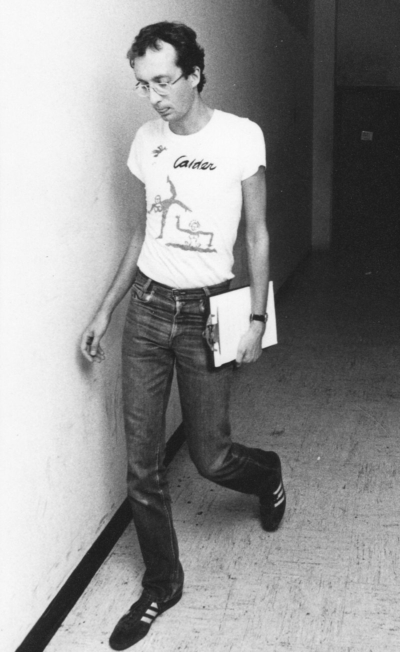About Frank Rose
 FRANK ROSE is the author most recently of The Sea We Swim In: How Stories Work in a Data-Driven World, published in 2021 in the US and the UK and named one of the best nonfiction books of the year by the Next Big Idea Club. His previous book, The Art of Immersion: How the Digital Generation Is Remaking Hollywood, Madison Avenue, and the Way We Tell Stories, was a landmark work that showed how technology is changing the age-old art of storytelling. Sparked by a decade of reporting on media and technology for Wired, it has been called “a grand trip” by Britain’s New Scientist and “a new media bible” by the Italian daily la Repubblica.
FRANK ROSE is the author most recently of The Sea We Swim In: How Stories Work in a Data-Driven World, published in 2021 in the US and the UK and named one of the best nonfiction books of the year by the Next Big Idea Club. His previous book, The Art of Immersion: How the Digital Generation Is Remaking Hollywood, Madison Avenue, and the Way We Tell Stories, was a landmark work that showed how technology is changing the age-old art of storytelling. Sparked by a decade of reporting on media and technology for Wired, it has been called “a grand trip” by Britain’s New Scientist and “a new media bible” by the Italian daily la Repubblica.
As an adjunct senior research scholar at Columbia University School of the Arts, Frank teaches global business executives as faculty director of the executive education seminar Strategic Storytelling, presented by the School of the Arts’ Digital Storytelling Lab. He is also awards director at the Digital Storytelling Lab, where in 2016 he launched the annual Breakthroughs in Storytelling awards to honor the most innovative approaches to narrative from the past year.
Frank speaks frequently on narrative thinking and the power of immersive storytelling. He has given keynotes at ad:tech Sydney, the Film4 Innovation Summit, The Guardian’s Changing Media Summit, and Sheffield Doc/Fest; debated the future of media at Stanford, MIT, South by Southwest, Ars Electronica, and the Politecnico di Milano; and lectured at USC, NYU and other schools in addition to Columbia. He has addressed global marketing summits at Timberland and Unilever, joined R&D symposia at the Museum of Modern Art and the BBC, taken part in speaker series at Google and Lucasfilm, and led workshops at L’Oréal, TBWA\Chiat\Day, and the United Nations.
❖

Backstage, c. 1976. T-shirt from “Calder’s Universe” at the Whitney Museum of American Art
A native of Virginia, Frank graduated from Washington & Lee with a degree in journalism and moved soon after to New York. He got his start covering the punk scene at CBGB for The Village Voice, chronicling the emergence of such performers as Patti Smith, the Ramones and Talking Heads. During this period he partnered with photographer George Bennett on Real Men: Sex and Style in an Uncertain Age, a book about styles of masculinity that featured profiles of seven men—a military cadet, a punk rocker, a professional hockey player, a gay designer, a steelworker, a playboy stockbroker and a Hollywood actor. After that, as a contributing editor at Esquire in the early ’80s, he documented a variety of highly idiosyncratic subcultures—New Wave in New York, generals and bureaucrats in the Pentagon, Christian surfers in southern California, entrepreneurs in Silicon Valley. One of the first national magazine writers to start reporting on digital technology, he waded into the controversy around artificial intelligence with Into the Heart of the Mind, a national best-seller about A.I. researchers at Berkeley trying to program a computer with common sense.
In his next book, West of Eden: The End of Innocence at Apple Computer, Frank delved into the cult of Macintosh and the power struggle between Steve Jobs and John Sculley that ended with Jobs being expelled from the company. Now available in an updated edition, it too became a national best-seller and was named one of the ten best business books of 1989 by Businessweek. He then turned his attention to Hollywood, becoming a contributing writer at the movie magazine Premiere and profiling such figures as Tim Burton and Jeffrey Katzenberg. Acting on the suggestion of legendary “superagent” Sue Mengers, he turned a story on turmoil at William Morris into The Agency: William Morris and the Hidden History of Show Business, a multi-generational saga of loyalty and betrayal at what was once the leading talent shop in Hollywood.
In 1997 he became a contributing writer at Fortune, where he broadened his focus from Hollywood to the global media conglomerates that dominated it—News Corp., Walt Disney, Time Warner, Sony, Viacom, and Universal—and the often ego-driven moguls who controlled them. Two years later he joined Wired as a contributing editor and over the next decade covered such stories as Samsung and the rise of the South Korean techno-state, the posthumous career of Philip K. Dick in Hollywood, and the making of James Cameron’s Avatar. When he realized as a result of this reporting that digital technology was changing the way we tell stories — that it was making them nonlinear, participatory and immersive — he left Wired to write The Art of Immersion.
Frank’s essays and reporting have also appeared in The New York Times Book Review and The New York Times Magazine, the Los Angeles Times, The Atlantic, New York, The New Yorker online, Rolling Stone, strategy+business, Travel+Leisure (where he was a contributing editor in the late ’90s) and Vanity Fair. In addition to his speaking, consulting and academic work, he currently contributes to The New York Times, The Wall Street Journal and other publications. In 2022 he became a trustee of the Martha Diamond Trust, dedicated to furthering the legacy of the New York painter Martha Diamond. He lives in the East Village of Manhattan and travels widely. ♦
